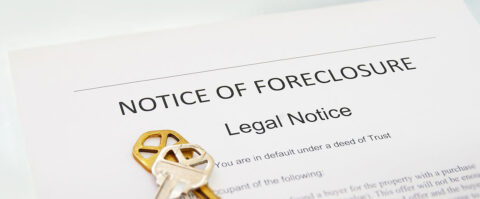
If you are a Defendant in a foreclosure case in New Jersey, you have the option to represent yourself. Should you choose to go this route, it is important to realize that you must comply with NJ Court Rules. If you don’t comply with the rules, your case could end quickly.
What To Expect if You Represent Yourself
When representing yourself, you should be aware of when you can get help and when you’ll need to handle things yourself.
Court Staff can:
- Explain and answer questions about how the court works and operates
- Tell you about the requirements for having your case heard by the court
- Provide some information from your case file
- Answer questions about court deadlines
Court Staff:
- CANNOT Give legal advice.
- CANNOT Advise you on whether or not to bring your case to court
- CANNOT Provide an opinion of what will happen when you bring your case to court
- CANNOT Let you talk to the judge outside of court
- CANNOT Change an order issued by a judge
If you choose to represent yourself, you should make sure to keep copies of all important documents and forms relating to your case.
Answering the Foreclosure Complaint
IF YOU HAVE BEEN SERVED WITH A FORECLOSURE COMPLAINT FOR THE FIRST TIME, YOU HAVE 35 DAYS TO FILE AN ANSWER. New Jersey Court Rule 4:64-1(c)(2) requires that the Answer contest the validity or priority of the mortgage or lien being foreclosed or create an issue with respect to plaintiff’s right to foreclose. If your Answer does not meet the requirements, it will be deemed “non-contesting” and the Plaintiff will be permitted to move forward with the foreclosure.
It is important that you follow the instructions that come with the complaint. The Answer must be filed in Trenton with the Foreclosure Unit; you must pay the filing fee; and you must provide a copy to the attorney for the Plaintiff. It is always a good idea to follow up with the Foreclosure Unit to make sure that they accepted your Answer and deemed it as “Contesting” the foreclosure.
If you receive an “Amended Complaint” the form will say that you have 35 days to file an Answer, but that is not correct. You only have 20 days to answer an Amended Complaint.(See N.J. Court Rule 4:9-1)
ONCE YOUR ANSWER HAS BEEN ACCEPTED, YOU NEED TO BE PREPARED TO LITIGATE YOUR CASE. MAKE SURE YOU OPEN ALL OF YOUR MAIL. The Court will issue a scheduling order to allow for discovery, motions and a trial. The Court may also issue a notice requiring you to come to Court for a conference. If you fail to appear, your Answer could be dismissed and your case could be over. (See N.J. Court Rule 1:2-4(a))
Steps for Taking Your Case to Court if You Didn’t File Your Answer in Time
If you don’t file a Contesting Answer on time, the Plaintiff can take default against you. After that, they can apply for Final Judgment and then schedule a Sheriff Sale. If you didn’t file an Answer on time and you want to try to defend the foreclosure, you will need to file a motion with the Judge to ask permission to:
- File an Answer out of Time
- Set Aside Default
- Vacate Final Judgment
- Stay a Sheriff Sale
- Set Aside a Sheriff Sale
It is important for all of these motions to explain why you didn’t Answer the Complaint on time, and why the Plaintiff does not have the right to foreclose.
GENERAL RULES FOR FILING MOTIONS
A motion is like a sandwich; two pieces of bread and stuff in between. The top piece of bread is your Notice of Motion. This tells everyone what you are asking the Court to do for you. The bottom piece of bread is the Order. That is the document the Judge will sign which will either grant the relief requested, or deny it. The stuff in the middle is your Certification and legal arguments to explain why the Judge should grant your motion.
Step 1: Complete the Notice of Motion (Form A) and determine a motion date
By filling out a Notice of Motion you will be informing the Court and all related parties that you have asked for some specific “relief.” In it you will identify the County Courthouse where the motion will be heard.
To determine a motion date, you can look at the motion schedule on the NJ Judiciary website. It is your responsibility to contact the courthouse in the county you want the case to be heard in order to confirm the scheduling. You should also pick a motion date at least 3 weeks from when you mail your motion paper to give the other party at least 16 days’ notice as is required by N.J. Court Rule 1:6-3. You can also decide whether you would like to make an oral argument or let the judge decide the motion based on the papers. In the end a judge has final say, so he/she may require oral argument or deny it entirely.
Step 2: Complete both the Certification in Support of Motion and the Certification of Service (Form B)
The Certification in Support of Motion indicates to the court why you want the ruling you requested and the facts the support the ruling. You should attach copies of any documents that provide support for your arguments. You can also write a letter to the Judge stating why the law is in your favor. The Judge is required to follow the law, so you should take time to find out if you have arguments with strong legal support.
The Certification of Service is your representation to the Court as to the date and manner that you provided proper notice to the Plaintiff’s lawyers and any other parties in the case.
Step 3: Complete the Proposed Form of Order (Form C)
Fill out all the necessary information so that once the Judge signs it, the Order will tell the world that you got what you asked for. The Judge can alter the Order or draft a new one, if they are going to grant some relief, other than exactly what you had asked for.
Step 4: Attach the filing fee
The fee for filing a motion is $50. You can make a check or money order payable to the Treasurer, State of New Jersey. If you have not filed an Answer or a previous motion, this may be considered a first pleading, and you may be charged an additional $175.00. It is a good idea to all the Court after you file the motion to make sure it has been accepted and listed for a hearing date.
Step 5: Check your completed forms and make copies
As per the previous steps you should have:
- Original Notice of Motion, Certifications, and Proposed Form of Order (Forms A, B, and C)
- Filing Fee
- Make sure all personal identifiers are redacted unless required to be included
- Sign the Motion and make copies to send to your adversary and any other necessary parties
Step 6: Mail or deliver original Notice of Motion, Certifications, and Proposed Form of Order to the Clerk’s Office for filing and mail copies to your adversary and other necessary parties.
You must serve your adversary no later than 16 days before the specified return date on your Notice of Motion.
Step 7: Mail or deliver the forms to the court
Mail the original Notice of Motion, Certifications, and Proposed Form of Order (Forms A, B, and C) to the Superior Court Clerk’s Office. All motions sent to the Clerk’s Office must have an ink signature and cannot be a copied version of the sign documents. The address of the Clerk’s office is:
Superior Court Clerk’s Office
Foreclosure Processing Services
P.O. Box 971
Trenton, New Jersey 08625
All of the forms mentioned can be found by visiting the Form Search Database on the New Jersey Courts website.
Should I Represent Myself in a Foreclosure Case?
We have laid out some of the basics of what you should know about representing yourself in a foreclosure case and how to go about having your case heard by the court. While this is always an option, hiring a lawyer who has handled many New Jersey foreclosure cases and can help you understand your rights is your best course of action. Ira J. Metrick has over 20 years of experience related to consumer transactions and focuses on defending consumers. He is recognized as one of the top foreclosure defense attorneys in New Jersey and will fight for you to stop foreclosure and stay in your home. Contact us today to go over the details of your case and to schedule a free consultation.



